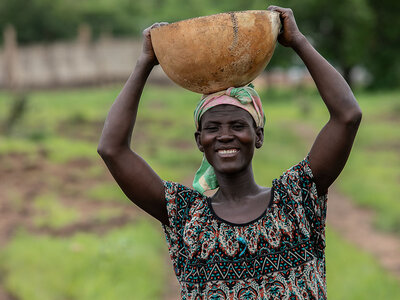Ghana
- 1.05 million
- people are food insecure
- 1 milion
- children under 5 are chronically malnourished
- US$5.6 million
- provided in cash assistance to crisis-affected people in 2023
Ghana has made significant progress in reducing poverty and expanding social services over two decades, but with mixed progress towards achieving the Sustainable Development Goals.
COVID-19 stalled growth, compounded by the economic impact of the war in Ukraine. Food inflation soared and rising debt threatened the country’s socioeconomic stability. The country has since made efforts to restore economic stability, including through boosting exports.
Over 1 million people are food insecure, while 1 million children under 5 are chronically malnourished.
The World Food Programme (WFP) works with the Government, other UN agencies and development partners, civil society and the private sector to prepare and respond to emergencies and build sustainable food security.
What the World Food Programme is doing in Ghana
-
Emergency preparedness and response
-
In collaboration with the Ghana Refugee Board, UNHCR and others, WFP is providing cash to asylum seekers in Tarikom resettlement centre in the Upper East region, who fled insecurity in Burkina Faso, and to host community members, to ensure both groups can cater for their food and other essential items. We also focus on strengthening Institutional capacity in emergency preparedness and response, for partners such as the National Disaster Management Organisation.
-
Nutrition
-
Food system
-
Social Protection
-
On-demand services
Ghana news releases
Go to pagePartners and donors
Find out more about the state of food security in Ghana
Visit the food security analysis pageOperations in Ghana
Contacts
Office
No. 7, 7th Rangoon Close, Cantonments, Accra, P.O. Box GP 1423
Accra, The Republic of Ghana
Ghana







